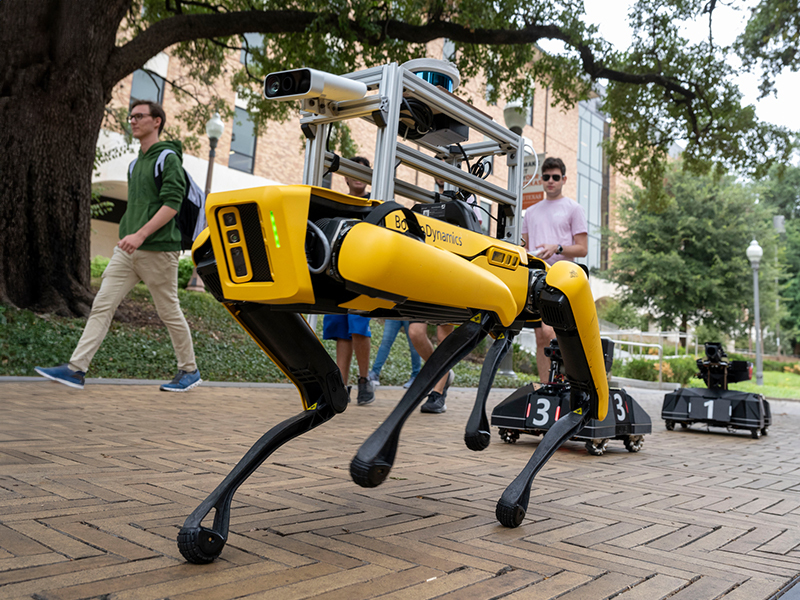With a focus on AI research and education in 2024, The University of Texas at Austin is set to showcase its leadership and expertise through signature events, new partnerships in industry and government, the introduction of the first cohort for an innovative online master’s degree in AI, and ongoing research advancements. The university aims to foster collaborations both on and off-campus, expanding opportunities for engagement and knowledge exchange.
Dan Jaffe, UT’s vice president for research, scholarship, and creative endeavors, expressed enthusiasm about the transformative potential of artificial intelligence, stating, “We are at a pivotal moment in the realm of AI, with diverse applications pushing the boundaries of innovation. UT is at the forefront of exploring AI across various domains, and with the collective expertise and passion within the university, we have designated 2024 as the ‘Year of AI.’”
For over fifty years, UT Austin has been a pioneer in AI technologies, attracting notable figures in the field such as Woody Bledsoe and Bob Simmons, who initiated AI research at the university in the 1960s. Since then, UT has established numerous research facilities, labs, and initiatives, drawing a talented pool of individuals to drive advancements in AI and related disciplines. The university has earned global recognition for its thought leadership, interdisciplinary collaborations, groundbreaking research, educational offerings, and ethical considerations surrounding AI.
In 2024, UT plans to expand its AI initiatives further by hosting and participating in various events throughout the year. Notable events include the Texas Academy of Medicine, Engineering, Science & Technology conference focusing on AI and machine learning in February and a significant presence at SXSW, featuring faculty members in panel discussions during UT’s activation on March 8-9.
The Year of AI builds upon previous successes, including UT’s consistent top rankings in artificial intelligence programs by U.S. News and World Report, supported by the cutting-edge infrastructure of the Texas Advanced Computing Center. The university’s commitment to AI education is evident through the launch of innovative online master’s programs in AI, computer science, and data science, catering to a diverse range of learners.
UT’s leadership in AI is further underscored by strategic partnerships and initiatives like the NSF AI Institute for Foundations of Machine Learning, the Machine Learning Laboratory supported by alumni donations, and collaborations in computational oncology and machine learning. The university’s interdisciplinary approach, exemplified by initiatives like Good Systems, reflects a commitment to developing ethical AI solutions for societal benefit.
Bruce Porter, professor of computer science and chief science officer at SparkCognition, highlighted UT’s comprehensive expertise in AI, bringing together talents from various fields including neural science, mathematics, statistics, and data science. UT Austin stands as a hub of excellence where diverse disciplines converge to drive advancements in artificial intelligence.






